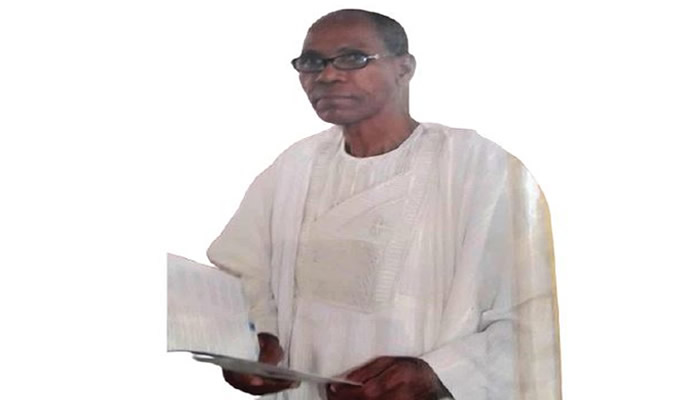
A 78-year-old retired medical practitioner, Dr Ademola Dixon, in this interview with JANET OGUNDEPO, speaks about his biography; “Age Gracefully” and the state of the nation’s health sector
How did your medical journey begin?
My name is Dr Ademola Dixon. I am 78 years old. After over two years in the service of the Lagos State Government, I resigned to join Mt Sinai Hospital, Lagos, in 1978. In 1992, I became the pioneer Medical Director, managing when the hospital was incorporated. Following a reorganisation in 2011, I became the Medical Director, Finance, until my retirement in 2019. After retirement, I wrote my biography titled “Omo Eko” at the prompting of my editor, Pa Modupe Oduyoye. I also documented my experiences in medical practice from 1974 to 2015. Along with three other resource persons, the book “Age Gracefully: Why and How to Live Long and Age Gracefully” was published in 2023.
As a retired physician, what can you say about the current state of the health sector compared to when you were practising?
The present state of medical practice reflects the state of the nation, with challenges that remain daunting and overwhelming. The major culprit is overpopulation, which exceeds our capacity to sustain effective healthcare delivery services.
While the geographical area of Nigeria has not changed since 1960, the livable space has reduced considerably due to increasing desert encroachment in the northern states, insurgency, and banditry, predominantly in the North, and unabated migration of people from rural to urban areas. This has resulted in overcrowding in major towns and state capitals, with many people residing in unplanned communities commonly known as slums in our major cities.
These developments have negatively affected and drastically reduced food production, leading to chronic malnutrition and malnourishment among our people. Poor nutrition, especially low protein intake, reduces immunity levels and resistance to infections, which commonly cause preventable deaths.
Nigerians have a significantly shorter lifespan compared to other countries: 53 and 61 years, compared to 79 years in Costa Rica and Cuba, and 81 years in the United Kingdom.
The annual budget of the Federal Government of Nigeria, the 36 states, and 774 local governments has risen considerably since 1999. Unfortunately, the quality of life, and access to food, water, shelter, education, and healthcare has not improved significantly. More funds are allocated to general administration, bureaucracy, road and bridge construction, flyovers, and the building of offices and residences.
In his 1973 book, “How Europe Underdeveloped Africa,” Walter Rodney asserted that in most African countries, general administration is the major industry.
The mass exodus of health practitioners has further reduced the quality of healthcare services. What needs to be done to revive the sector?
We need to examine the basics of governance, education, and health. The exodus of health practitioners, occurring randomly, reflects governance issues. With more care and wisdom, the migration could have been better managed. India produced medical doctors for “export” to generate foreign exchange in the 70s/80s, and we can emulate this practice. We could envisage a scenario where some of our doctors work overseas, remitting foreign exchange while honing their skills. These doctors, with enhanced expertise, would be more inclined to return to the country if, from the outset, the government actively supported them.
How will the mass departure of experienced trainers and consultants affect the quality of training for new doctors?
It is a pity that we are now reaping the fruits of over 50 years of neglect in the health sector, but there is no use crying over spilt milk. We can and should retrace our steps. It is never too late to turn back, even if we have been on the wrong path for that length of time.
The exodus of experienced trainers and consultants is very devastating. With the right mix of incentives for those who have chosen to remain in the country, we can mitigate the damage. In the interim, addressing the obstacles that hinder us from actively participating in governance can help reverse the debilitating effects of existing structures.
With processed foods becoming more prevalent over traditional local foods, how can Nigerians maintain a healthy lifestyle and age gracefully?
You have again raised the role of the educated mind, which is our capacity to appreciate the negative effects of bad habits. In any case, don’t forget that the healthcare delivery system, family medical history, lifestyle, and environment are factors influencing each individual’s health status.
The role of health education is critical, as an educated mind will respond positively to these factors and do what is necessary to enjoy robust health. The greatest impediments in life include various forms of addictions, cravings, lusts, and addictions to unwholesome foods. Our dieticians and health educators must guide us on how to overcome these challenges. That is why continuous health education is necessary.
In your book, “Age Gracefully: Why and How to Live Long and Age Gracefully,” you mentioned the principles needed to increase the overall lifespan of men and women. How can this be achieved?
Our genes play a significant role in determining how long we live. Longevity runs in some families, independent of diet and lifestyle, among other factors. However, the majority of us may not naturally be endowed with long life. There are indeed necessary practical steps to promote a long life and age gracefully.
These steps include tracking your family’s medical history to see how long they lived, dating back one or two generations. Also, examine your lifestyle for clearly injurious habits, such as smoking, alcohol abuse, and cravings that can lead to illness. We need both physical and spiritual efforts to tame our appetites, lusts, and excessive libido.
Make sure you live in a healthy and clean environment and undergo periodic medical check-ups to determine your health status. Furthermore, avoid a sedentary lifestyle and unnecessary stress while trying to live “a good life.” Avoid self-medication, ensure adequate rest, and take care of your body from head to toe.
Additionally, it is customary to plan for retirement. The usual emphasis is on creating a retirement plan, an egg nest to ensure a blissful life in retirement. This includes having a trust to manage physical acquisitions, such as stocks and profit-yielding assets, to ensure comfort in retirement. This will certainly promote longevity and graceful ageing.
In addition to physical assets, we should equally address the spiritual aspect of our being. After the age of 75, life can become boring and monotonous, irrespective of one’s physical acquisitions. Thus, the spirit needs to be nourished daily through whatever means are at our disposal.
At 75, there is a need for stocktaking, what legacies are we leaving behind?
Life in all seasons must have a purpose. We can always seek avenues to be more relevant to our family, friends, and community at any age. We should strive to leave a lasting legacy.
Ageing gracefully entails a lifelong walk with our Creator. It is a process during which we create a spiritual asset that will continually replenish our frail body from the wear and tear of growing old. The inner mind is more resilient, and if regularly nurtured, it is an engine that must be serviced without fail. No price is too high for doing so.
Seeing how Nigeria and the health sector fared during COVID-19, what lessons have been learnt and can be implemented for pandemic preparedness?
COVID-19 exposed the limitations and challenges of tremendous advances made over the centuries in curative medicine and modern healthcare services. Fortunately, the damage in African countries was less severe relative to advanced countries. What could have caused this disparity in the number of victims between Africa and these other countries? There is also the startling revelation that people of colour in the United States of America and the United Kingdom succumbed relatively more than the white population.
Not being a medical scientist or researcher, I can only hazard guesses. The famous COVID-19 victims in Nigeria were people of affluence; among them were a serving state governor, a senator, and the former chief of staff to the immediate past president. The role of exercise is also significant. While Caucasians are free, unencumbered, and acclimatised to temperate climates, enjoying leisurely walks in all seasons, people of colour in the UK and USA, originally from tropical Africa, are cold intolerant. They are inclined to stay indoors when it is cold, leading to a sedentary lifestyle with its attendant damage to health.
The lessons we must learn include moderating our appetite for Western food and diet. We must encourage our affluent Nigerians, especially their children, to avoid this practice. Prevention is better than cure. Another lesson is our level of preparedness in terms of facilities to manage future pandemics. We must shift our focus. There is an urgent need to establish comprehensive preventive healthcare facilities in our communities so that any possible outbreak of contagious diseases can be contained speedily at this level, preventing spread.
Fortunately, the Alma-Ata Declaration of 1978 spelt out the modality for setting up an effective healthcare delivery system. If embraced and fully implemented, our communities will become centres of development and effective governance. As citizens, we need to develop the willpower to do what is necessary at all levels of governance.
What specific steps can the health sector take to mitigate the negative effects of future pandemics?
The health sector, on its own, can do very little unless there is a drastic change in governance. For the last 25 years, there has been much discussion and agitation for the devolution of powers, with the usual demand being to devolve more resources from the centre to state and local governments.
Unfortunately, our experience over the same period has clearly shown that the emphasis at all three levels of government is currently and persistently on infrastructure. When a hospital is built, the focus is on constructing large edifices at a huge cost. After construction, there is little left to equip the facility and pay professional staff adequately.
There ought to be a focus on the development of schools, health facilities, markets, sanitation, and security. Infections constitute a major cause of illness in Nigeria, so public health deserves more attention and resources at the communal level.
As a student of history, I recall that Lagos in the 1950s was so well administered that it was voted the cleanest town in the British Commonwealth of 56 nations in 1952. This feat was a result of effective urban planning by the colonial authorities. Public health was taken very seriously after the bubonic plague epidemic in Lagos between 1924 and 1930. Dr Isaac Ladipo Oluwole, of blessed memory, was the foremost public health physician of that glorious era. He was the architect of impressive initiatives such as founding the School of Health Services in 1925, located at the corner of Broad Street and Ajele Street for the training of sanitary inspectors, commonly called wole wole. He also established the Infectious Disease Hospital in Yaba and the Massey Street Children’s Hospital in Lagos, among others.
Health and education must be promoted at the communal level to ensure a longer lifespan for our people. Ultimately, the provision of life’s necessities — food, water, and shelter — should be done with the full participation of citizens in various communities.





